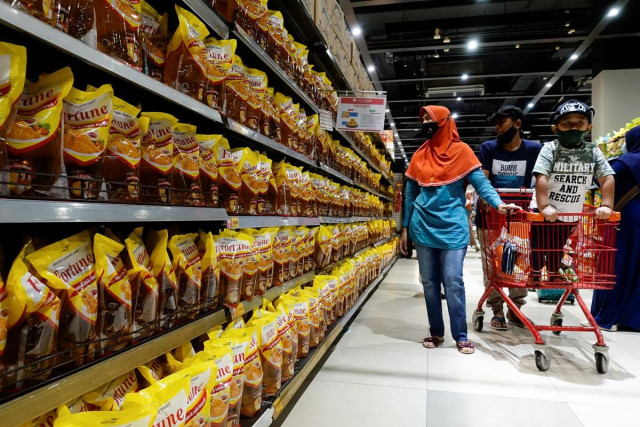Palm oil imports to rise as Indonesia lifts ban
Jakarta paying special attention to edible oil needs of Pakistan

Indonesian Ambassador to Pakistan Adam Mulawarman Tugio has said that Indonesia has lifted the global ban on palm oil export last week and now palm oil supply to Pakistan will improve. “Indonesia is the largest supplier of palm oil to Pakistan and it will now be available in local markets,” said Tugio while talking to APP on Sunday.
The Indonesian government is paying special attention to Pakistani markets in order to increase export of palm oil. He acknowledged that due to the ban on export of palm oil, the people and traders of Pakistan had faced difficulties. “In this matter, the Indonesian embassy in Islamabad will fully cooperate with the local markets.” In early May 2022, the Indonesian government temporarily banned global export of palm oil for local market regulation and stabilisation.
Earlier, with the arrival of Ramazan, edible oil consumption increased in Indonesia and it became difficult to provide oil for the local market of 270 million people with exports across the world, the ambassador pointed out. Considering the global trade dynamics and supply chain, the decision was made on palm oil exports, which would improve price stability in Indonesia’s domestic market, he stressed.
Replying to a question, the envoy quoted figures, saying that the global consumption of palm oil currently stood at 70 million tonnes, of which 33 million tonnes were produced in Indonesia. Indonesia is the world’s largest exporter of palm oil, which also impacts the local market, which has to be adjusted according to prices. He pointed out that the policy was designed to meet the demand for palm oil in Indonesia, both at the domestic and industrial levels.
In response to another question, the ambassador said that Pakistan was a big consumer of Indonesian palm oil as it was importing $2.8 billion worth of palm oil annually. Meanwhile, talking to APP, former Islamabad Chamber of Commerce and Industry (ICCI) president Amir Waheed, who was also an importer of Indonesian palm oil, appreciated the resumption of palm oil export by Jakarta.
Now, he voiced hope, ghee and edible oil prices would stabilise in the domestic market. He acknowledged that the ban on palm oil export from Indonesia had impacted both the industrial and domestic consumers in Pakistan. “Owing to the demand and supply gap, prices of edible oil have increased in the local market.” Senior business leader and former ICCI president Atif Ikram praised the Indonesian government for taking a good step by restoring palm oil supply to Pakistan.
According to data released by the Pakistan Bureau of Statistics (PBS), palm oil imports surged 46.7% in the first three quarters (Jul-Mar) of current fiscal year as compared to the corresponding period of previous year. Palm oil imports during Jul-Mar FY22 were valued at $2.7 billion against imports worth $1.9 billion in Jul-Mar FY21. On the other hand, soybean imports went up 113.7% to $103.3 million as compared to imports worth $48.3 million in the last fiscal year.
On a year-on-year basis, the palm oil imports recorded an increase of 5.4% in March 2022 as compared to the same month of last year. Palm oil imports in March 2022 were recorded at $290.5 million against imports of $275.5 million in March 2021, according to the PBS data. Soybean imports during the month increased by 100% to $11.7 million as compared to zero imports in the same month of last year. On a month-on-month basis, the palm oil imports declined 6.2% in March 2022 as compared to imports valuing at $309.8 million in February 2022.
Imports of soybean, however, went up 27.7% in March 2022 as compared to imports of $16.8 million in February 2022. Edible oil prices have also gone up following the Russian invasion of Ukraine. The two countries produce about 71% of the world’s sunflower oil, and the recent absence of exports has caused a spike in the demand for substitutes, including palm oil



















COMMENTS
Comments are moderated and generally will be posted if they are on-topic and not abusive.
For more information, please see our Comments FAQ